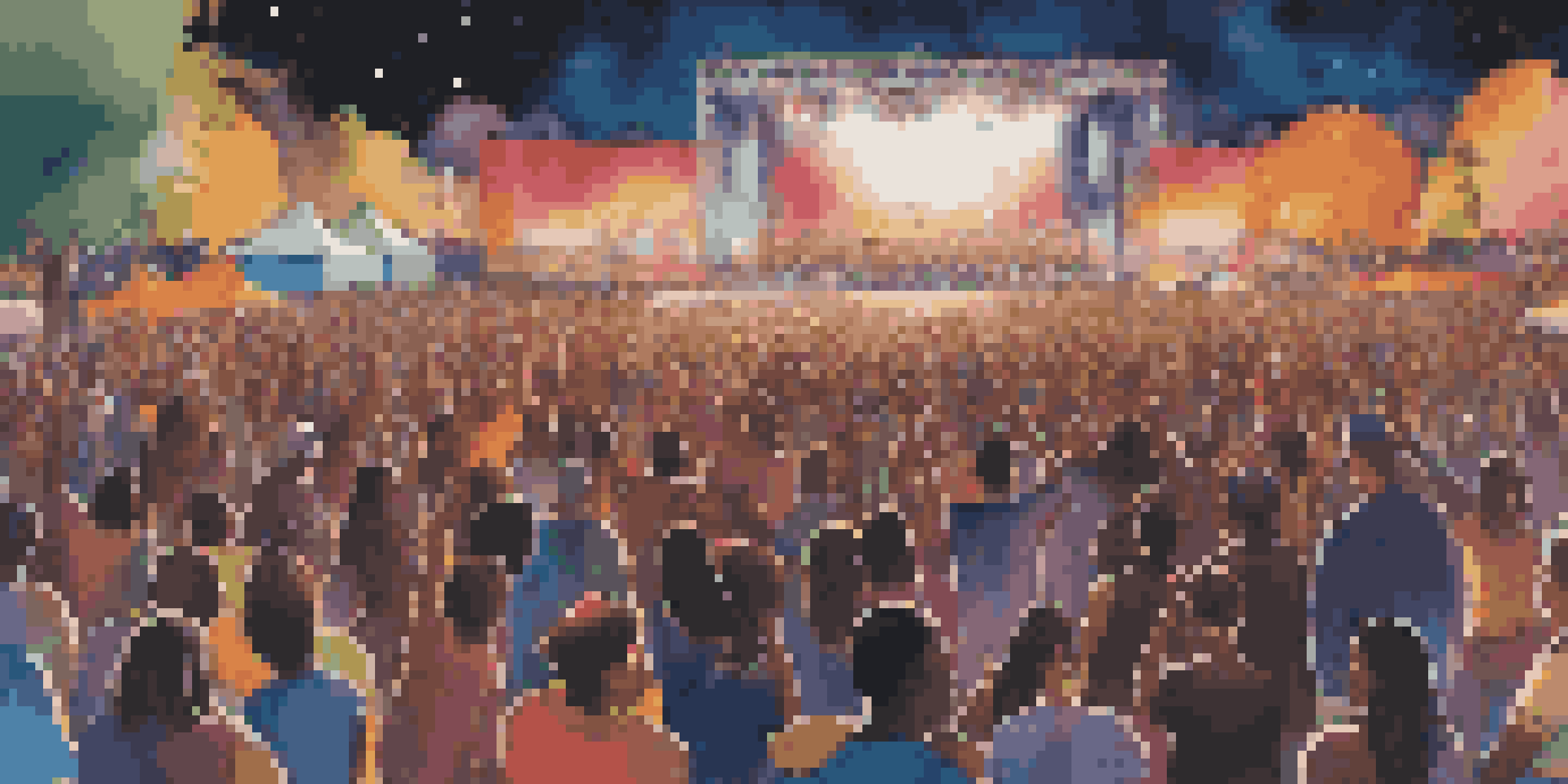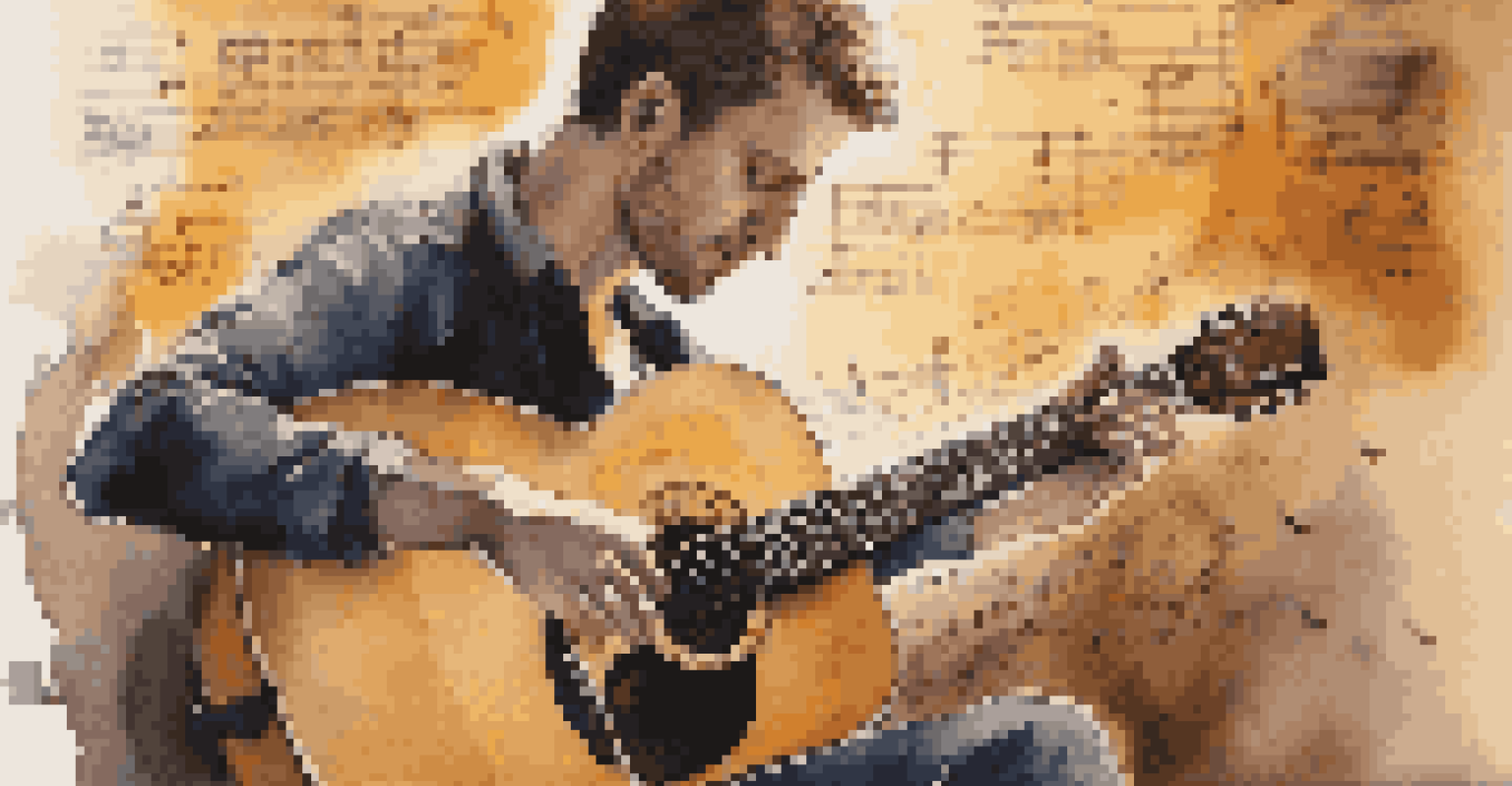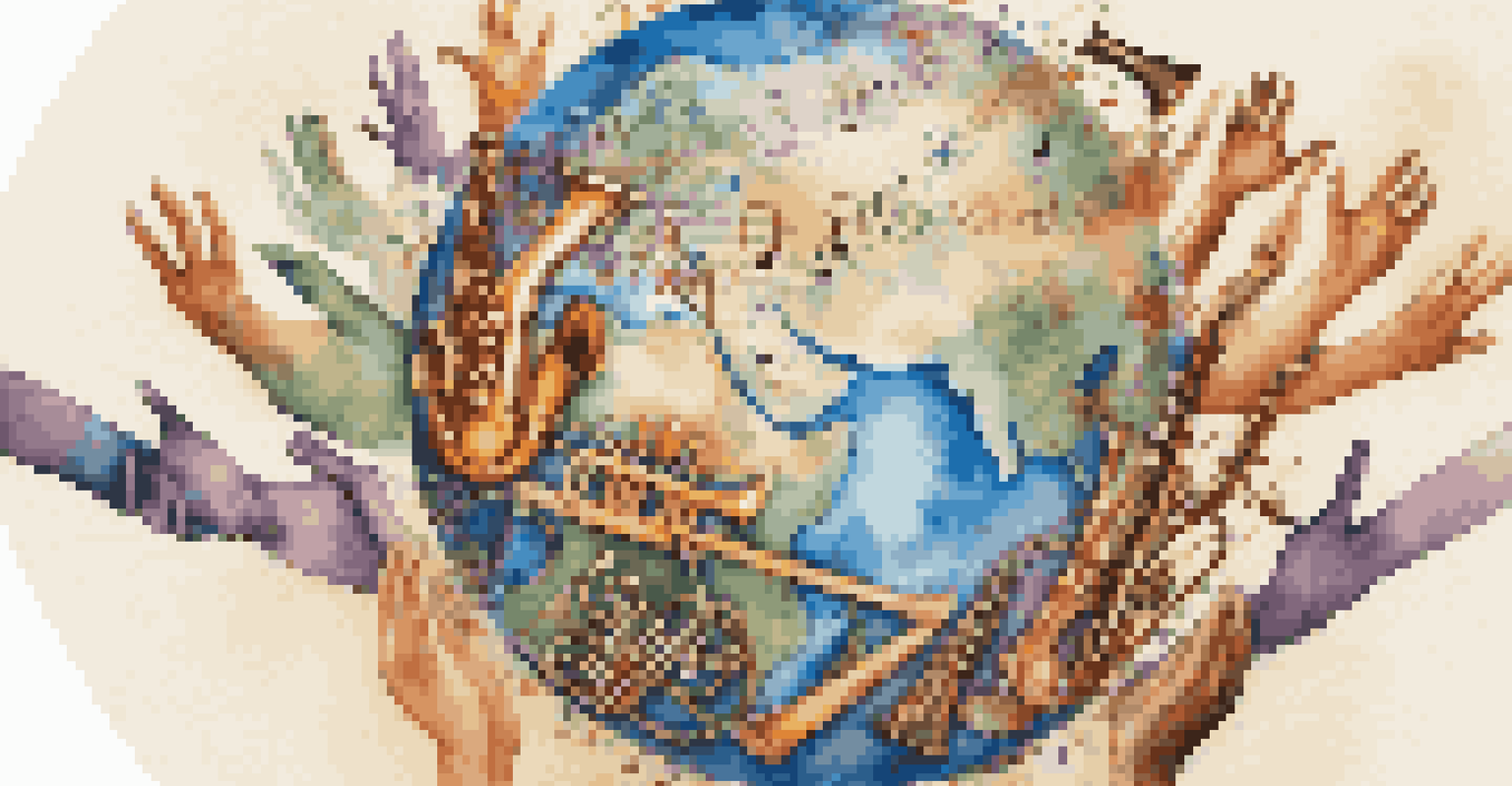The Sound of Freedom: Music in Global Human Rights Movements

The Historical Connection Between Music and Activism
Music has long been intertwined with social justice and activism. From the civil rights movement to anti-apartheid protests, songs have served as powerful anthems, rallying people around a common cause. They evoke emotions, inspire solidarity, and provide a voice for those who might otherwise go unheard.
Music is the shorthand of emotion.
For instance, songs like 'We Shall Overcome' became synonymous with the civil rights movement in the U.S., uniting protestors in their fight against racial injustice. Similarly, 'Nkosi Sikelel' iAfrika' played a crucial role in the struggle against apartheid in South Africa, symbolizing hope and resilience. These musical expressions not only captured the spirit of the times but also helped to mobilize communities.
As we dive deeper, it’s clear that music isn’t just background noise; it’s a vital part of the narrative in human rights struggles. It breaks down barriers, transcending language and cultural differences, making it a universal tool for change and awareness.
Anthems of Change: Songs That Inspired Movements
Certain songs have become defining anthems in various human rights movements, resonating through time and space. For example, 'Imagine' by John Lennon invites listeners to envision a world without barriers, promoting peace and unity, which has inspired countless movements for justice. Its simple yet profound message continues to echo in protests and marches around the globe.

Another notable example is 'Fight the Power' by Public Enemy, which became a rallying cry during the fight against systemic racism and inequality. The song's powerful lyrics challenge oppression and empower marginalized voices, making it a staple in activism playlists. These songs do more than entertain; they ignite passion and purpose.
These anthems encapsulate the struggles faced by individuals and communities, serving as both a call to action and a reminder of shared humanity. They remind us that music can be a catalyst for change, inspiring generations to stand up for their rights and the rights of others.
Modern Music Icons and Their Activism
Today, many contemporary artists use their platform to advocate for human rights and social justice. Musicians like Beyoncé, Kendrick Lamar, and Billie Eilish have incorporated activism into their work, using their music to address issues such as racial injustice, climate change, and mental health. Their influence extends beyond the stage, as they engage with fans and encourage them to take a stand.
The power of music makes all the difference in the world.
Beyoncé's 'Formation' is a powerful example of how music can celebrate culture while also confronting societal issues. It highlights the struggles faced by Black women in America and calls for empowerment and pride. Through her artistry, she not only entertains but also educates, sparking conversations about race and identity.
Similarly, Kendrick Lamar's lyrics often delve into the complexities of race, poverty, and violence, resonating deeply with audiences. By addressing these topics, he adds a critical voice to the ongoing dialogue around social justice, reminding listeners of the power of music in advocacy.
Global Voices: Music Beyond Borders
Music's impact on human rights isn't confined to one region; it resonates globally. Artists from diverse backgrounds use their music to address local and international issues, often reflecting the struggles of their communities. For instance, Fela Kuti's Afrobeat music not only entertained but also critiqued the Nigerian government, inspiring a generation of activists.
In Latin America, artists like Silvio Rodríguez and Mercedes Sosa have used folk music to highlight social injustices, echoing the voices of the oppressed. Their songs serve as reminders of the power of cultural expression in advocating for human rights. This global tapestry of music showcases how different cultures can unite for a common cause.
As we explore these global sounds, it becomes evident that music acts as a bridge, connecting people across borders. It fosters empathy and understanding, making it a vital part of the human rights landscape worldwide.
The Role of Music Festivals in Advocacy
Music festivals have emerged as significant platforms for promoting human rights and social justice. Events like Coachella and Glastonbury often feature artists who advocate for various causes, creating a space for awareness and fundraising. These festivals attract large audiences, providing an opportunity to amplify important messages through the power of music.
For example, the Global Citizen Festival brings together artists and activists to address issues such as poverty and climate change. By combining entertainment with advocacy, these events inspire attendees to take action, whether through donations or by spreading the word. The energy of live music creates a unique atmosphere that fosters community and commitment.
As more festivals incorporate social justice themes, they help to create a culture of activism within the music industry. This blend of art and advocacy encourages fans to engage with the issues that matter, proving that music can be a force for positive change.
The Power of Lyrics: Storytelling in Advocacy
Lyrics play a crucial role in how music communicates messages of human rights. Through storytelling, artists can share personal experiences and highlight broader social issues. This narrative approach allows listeners to connect emotionally, making the message resonate on a deeper level.
For instance, Janelle Monáe's 'Tightrope' addresses the struggles of maintaining balance in a world filled with adversity. Its upbeat tempo contrasts with the serious themes, illustrating the complexity of navigating life's challenges. By weaving personal narratives into her music, she invites listeners to reflect on their own experiences.
This storytelling aspect of music not only entertains but also educates, raising awareness about pressing issues. When artists share their truths through lyrics, they create a powerful connection with their audience, fostering empathy and understanding around human rights concerns.
Looking Ahead: Music's Future in Human Rights Movements
As we look to the future, the role of music in human rights movements is likely to evolve alongside societal changes. With the rise of digital platforms, artists have more opportunities than ever to reach global audiences, spreading messages of justice and equality. Social media has become a vital tool for advocacy, allowing musicians to engage directly with their fans and inspire action.
Moreover, the current generation of artists is increasingly aware of their influence and responsibility. Many are using their platforms not just to entertain but to educate and mobilize their followers around important issues. This shift indicates a growing recognition of the potential for music to drive social change.

Ultimately, as long as there are injustices in the world, music will continue to be a powerful tool for advocacy. Whether through protest songs, empowering anthems, or collaborative projects, the sound of freedom will resonate in the heartbeat of human rights movements worldwide.